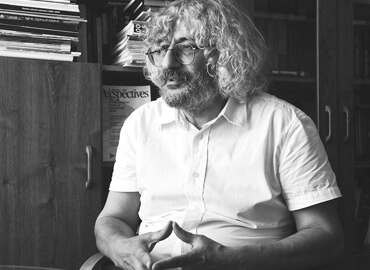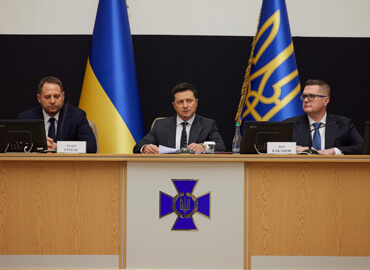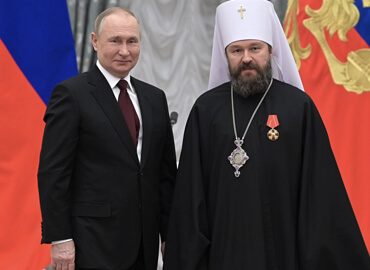At first glance, the subject of Belarus’s «neutrality» in the political sense seems pointless. Although the 1994 Constitution stipulated an «aspiring towards neutrality,» all neighboring countries perceived the situation after 1999 not de jure, but de facto. For Lithuania, Poland, and the Baltic countries, the political regime in Minsk was perceived as «pro-Moscow.»
The Kremlin looked at Minsk as a privileged ally, including a military ally. And even more so since 2009, when Moscow stepped up military exercises on its borders. Although the defensive or anti-terrorist nature was officially emphasized in the joint exercises of Russian and Belarusian troops, after Putin’s Munich speech, however, and then the Russian-Georgian war, all countries in the region, including Scandinavia, saw in these exercises elements of practicing offensive actions, including a strike on Poland and a landing from the sea.
And after 2014, these military exercises could no longer be perceived as anything other than a specific threat. As Uffe Ellemann-Jensen, the former head of the Danish Foreign Ministry, wrote in 2017 regarding a regular exercise, «this is the first time they have been conducted on such a large scale… The attacks on Georgia in 2008 and Ukraine in 2014 began with large military exercises suddenly turning into real military action. Therefore, it is not surprising that the small Baltic countries are so concerned…»
Special military cooperation between Moscow and Minsk has developed during all periods of Lukashenko’s political maneuvering in the past 20 years.
Regarding constitutional reform, it is no coincidence that Lukashenko in passing and nonchalantly spoke about changing the article on «neutrality.» He made it clear that in bargaining with Moscow, he is ready to sacrifice this «pawn» to maintain position. Lukashenko did not want to offer Moscow in exchange for the support that Putin gave him anything that Moscow expected of him, whether that be the recognition of Crimea, the military base, or clear plan for the «transition of power.»
Lukashenko made many moves during the year of the crisis, which turned out to be the result of «feints»: he announced the preparation of constitutional reform, coordinated integration maps, and made dozens of eccentric pro-Moscow statements. However, a closer look shows that there is nothing in the constitutional reform for the Kremlin and there is nothing in the integration maps that fighters for the «union state» have dreamt of in Moscow for many years. And deleting the phrase about «aspiring towards neutrality» is just «deleting a phrase,» and not adding anything else to the Constitution in its place. The Kremlin now has every reason to suspect Lukashenko of being sneaky even in this. Because the academic sociological institute of Belarus has just published the poll data that show that Belarusians are against giving up neutrality. And this gives Lukashenko grounds to say at the next turn: «I was ready to cancel neutrality, but the people are against it.»
Lukashenko is playing a hopeless game. With the help of any form of cynical maneuvering and constant re-dealing of the cards, he is setting himself the goal of approaching the referendum in February so that it turns exclusively into a referendum on personal trust in him. Its strategic goal is not to create conditions for the transition of power with the help of constitutional reform, but to obtain figures through the «popular vote» that would look like the population’s agreeing with Lukashenko’s «no alternative.» Lukashenko will present to both the Kremlin and the West any 55% received for any question put to a referendum as a «delayed confirmation» of his victory over Tikhanovskaya in 2020. Even if this is a slippery and weak legitimation, Lukashenko will thereby break through the perimeter of complete delegitimization. «I am protecting you from a revolution from the West and from a takeover from Moscow and only I know how to maneuver between the two» – this is what he is banking on. That is why he is tossing the Kremlin a red herring of «neutrality,» supposedly in the form of a concession.
It should be noted, however, that the context of this «neutrality» has changed dramatically over the past two years.
- First, this is because of Ukraine. The conflict between Moscow and Kyiv, after a short first year of President Zelenskiy’s mandate for a «policy of peace,» has reached a new level. Over Ukraine now hangs not a «Slavic Switzerland,» but a dangerous pro-Russian military balcony.
- Second, the migration crisis forced the European Union to take border protection measures, and with it came the inevitable revision of the very concept of the eastern border of the European Union. The responsibility for this crisis lies not only with Minsk, but also with Moscow, as is clear from the speeches of Ursula von der Leyen and Horst Seehofer. Warsaw and Berlin are aware that Putin could have stopped all this, but he is not doing it. This is then a deliberate game of destabilization directed against the European Union.
- Third, the disappearance of «Slavic Switzerland» from the map of Eastern Europe puts the political circles of the countries of northern Europe in a new position. Previously, the Belarusian security glass may have been half empty, but it was also half full. And this could be used to appeal to the supporters of a cautious policy in Finland, Sweden, and Denmark. Now the Nordic countries are facing «an updated version of an old threat.»
What is the Kremlin’s position regarding the «neutrality» put up for auction? In my opinion, the context has changed here. In October, a scandal erupted. The results of a poll conducted in Belarus in August 2021 by the Kremlin’s closest sociological service – the Russian Public Opinion Research Center, or VTsIOM – appeared on the internet. The poll showed that 30% of those surveyed have a positive attitude towards Lukashenko, and 55% are negative. He continues to lose out to Tikhanovskaya, Babariko, and Kolesnikova. It follows from this poll that 40% have a positive attitude towards Putin. This is an open blow to Lukashenko.
The Kremlin wants to let him know that no trick with a referendum will convince Moscow that Lukashenko’s legitimacy has been restored. Moreover, the VTsIOM data are aimed at showing that the positive attitude towards figures read as follows (in percent): Merkel – 52; Kolesnikova – 50; Babariko – 48; Tikhanovskaya – 46; Latushko – 44; and even Zelensky – 32. Lukashenko has only 30%. One could be skeptical about any polls by VTsIOM, but the Kremlin’s political message is read clearly.
All this creates a new field of struggle around «neutrality.» For Belarusian society, which does not support Lukashenko, the rejection of «neutrality» in the Constitution clearly reduces future political options and undermines the very idea of maintaining the status quo of Belarus between East and West. For Moscow, abandoning «neutrality» will not mean abandoning the long-term strategy of creating a military base in Belarus. Fyodor Lukyanov wrote of this directly, and the topic was further explored by the Russian military expert Pavel Luzin in an interview with iSANS.
For Poland, Lithuania, and Ukraine, this will mean only one thing: Lukashenko will soon leave without getting out of the wreckage of the 2020 presidential campaign and under pressure from Moscow, and the new Belarusian authorities will find themselves without «neutrality» in the Constitution and with even more severe economic dependence on the Kremlin. This means that it must now strengthen its defenses on this flank.
The line about neutrality is strategically much more important than all the ideas about the design of government bodies and the redistribution of powers, which, as can now be seen already, do not create anything fundamentally new.
Will Lukashenko agree to remove the phrase about neutrality from the Constitution? As early as the first decade of November, the draft is expected to be published, and no later than the end of February it will be submitted to a referendum.
Alexander Morozov,
iSANS analyst, political scientist, philosopher, lecturer at Charles University, Prague. This article was prepared by iSANS specially for Reform.by.
Материал доступен на русском языке: Александр Морозов: контекст «нейтралитета» Беларуси сильно изменился за два года











